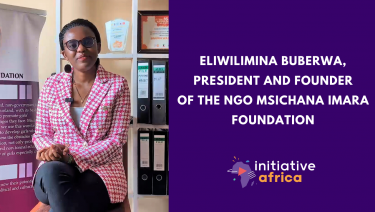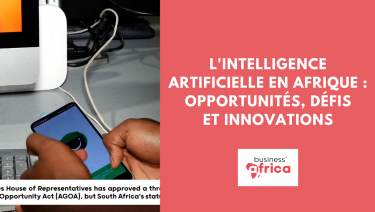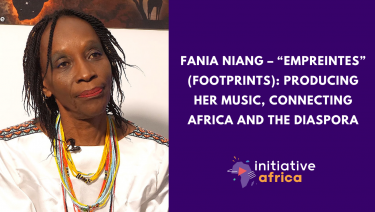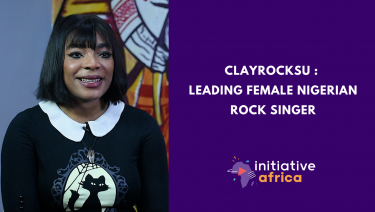The piece still missing in Africa’s CSR solutions

By Sebastian Woller
African organizations are stuck in a rut. Resources and human efforts are wasted, the youth lack career prospects, the old retire without pensions, and women feel the sting of workplace discrimination. To be sure, these problems are not only confined to profit-seeking organizations. They are found in the likes of hospitals and schools as well.
Indeed, African organizations require major changes. These changes, I maintain, cannot be achieved by Corporate Social Responsibility (CSR) alone. Instead, the vehicle that will lead Africa to a profound transformation in values, economic behaviour, and quality of life is technology. This technology is called management (the definition of technology is the application of knowledge to human work).
Management: a vehicle of change
“While there is no shortage of talent in Africa, there is a critical lack of business and management skills” – African Management Initiative
For the average African worker, CSR appears as a heavy dressing of humanitarian rhetoric or a pleasant but unessential relish. What African workers require is a practice and discipline that can lead to immediate results:
- African workers need “employees.” In Nigeria, Africa’s most populous country, employment is ambiguous, unorganized, and unprotected. Informal workers make up 80% of the workforce (source: The Economist). Management is needed to create strong contractual relationships and morally decisive realms, in which people can earn a stable income and work together – through strictly impersonal objectives – to contribute to a meaningful purpose.
- African workers need higher wages. To be clear, wages need to increase by at least 100%. In the Democratic Republic of Congo (DRC), the second-largest country in Africa by size, 70% of the population lives on less than $1.90 a day and the average worker earns less than $400 a year (source: World Bank; Business Insider). Management is needed to systematically study tasks and to ensure that the right tools are being integrated into organizations. It is also needed to increase productivity, as this enables workers to receive more benefits for their work.
- African workers need a scientific selection process. Organizations need to employ talent, diversity, and competition – wherever possible. In Ethiopia, the only country on the continent that has never been colonized, state-owned monopolies still undermine free competition and stifle creativity. This is the case in the telecommunications sector, for example (source: Financial Times). Government officials and policymakers are ill-suited to decide who or what should grow or satisfy the needs, aspirations, and expectations of tomorrow’s business world. This is the task of management.
CSR is the consequence of management
“CSR is best understood as a niche rather than a generic strategy” – Brookings
Although CSR is used interchangeably with management perhaps, it is as different from it as cement is from concrete. For more than 100 years, the best and brightest have been talking about “The Social Responsibilities of Business,” beginning with industrialists like Shibusawa Eiichi (Japan), Seebohm Rowntree (UK), and Walther Rathenau (Germany). However, not until the conception of “Scientific Management” in the 1900s as well as the “management boom” in the 1950s were leaders able to incorporate CSR solutions in their management strategies for social and environmental issues (recommended: Harvard Business Review).
All told, Management is a powerful knowledge that can help African workers and organizations overcome struggles, environmental catastrophes, and traumatic events. It is unique because it draws together knowledge from different disciplines, including psychology, philosophy, and history, to make societies more affluent and sustainable.
African organizations need the application of modern management above everything else if they seek a more social, more responsible, and more prosperous future.
See also

Eliwilimina Buberwa, president and founder of the NGO Msichana Imara Foundation
In this interview, Initiative Africa speaks with Eliwilimina Buberwa, founder of the NGO Msichana Imara Foundation, which is dedicated to combating period poverty in Tanzania. Drawing on her own experience, she explains how the lack of information, products, and adequate infrastructure still deprives millions of young girls of their right to education. This is a crucial discussion on a public health, gender equality, and social justice issue at the heart of rural communities. Journalist: Alexandra Vépierre

Artificial intelligence in Africa: opportunities, challenges and innovations
Artificial intelligence is reshaping the global economy — and Africa is no exception. In Cameroon, the startup Comparo is helping small and medium-sized businesses stand out in the e-commerce space, thanks to accessible AI-driven tools that streamline web creation and customer targeting. But beyond the promise, AI raises serious concerns: data control, technological dependency, social divides… This report dives into the local innovations and global challenges shaping Africa’s digital transition.

Fania Niang – “Empreintes” (Footprints): producing her music, connecting Africa and the diaspora
With Empreintes, her fifth album, Fania Niang presents an intimate and socially engaged body of work, recorded in Dakar and self-produced for the first time in her career. In this interview, she reflects on her journey between Africa, Europe and the United States, the challenges of independent production, and the musical connection she built with Senegalese musicians who have transcended cultural boundaries. She also shares her perspective on today’s African music scene, the dialogue between diaspora artists and the continent, and her desire to give back by sharing knowledge, experience and creative vision. A powerful conversation about music as memory, identity and transmission. Journalist: Laurence Soustras

CLAYROCKSU, leading female Nigerian rock singer
She grew up singing in church and ended up fronting Nigeria’s rock scene. In this exclusive interview, Clayrocksu opens up about what it means to be a rock artist and a woman in a country dominated by Afrobeats. From her early days mixing Igbo and English lyrics, to building a community of Afro-rock musicians, she shares how music became a form of rebellion, healing, and identity. Between faith, family, and fire, her voice carries a message for all the misfits who refuse to fit in. Journalist: Sharafa